East Asian literati, Korean rice wine and writhing octopus tentacles
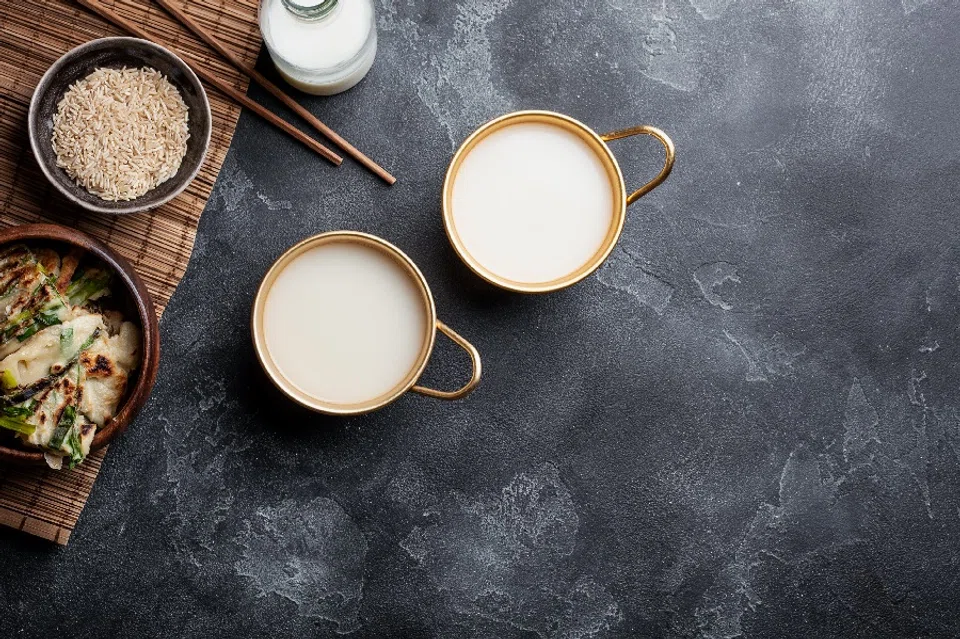
Professor Lee, a member of The National Academy of Engineering of Korea, is a hale and hearty academic in his eighties. His pumpkin-shaped face, framed by two bushy eyebrows, is always lighted up with a smile. Spotting us, he immediately rushed forward and shook our hands, greeting us warmly and expressing his joy at seeing us again. He is an esteemed scholar in South Korea's civil engineering sector but is most passionate about calligraphy. In retirement, he became a strong advocate of joint calligraphic exchanges between China and South Korea. We had come to Seoul National University to discuss matters relating to a China-South Korea calligraphy exhibition. He received us at the university's Hoam Faculty House, and treated us to a feast of Korean delicacies.
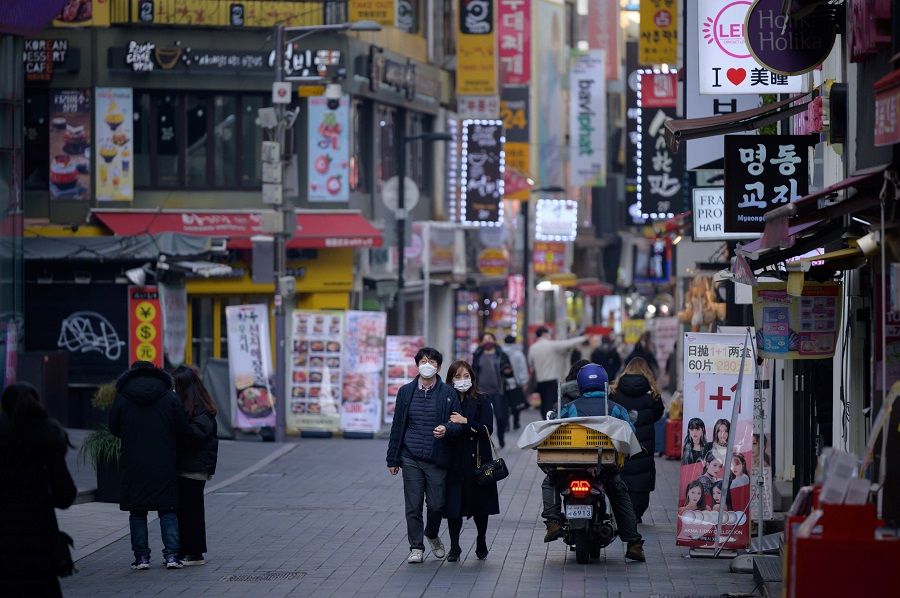
Every time we visited Seoul, Prof Lee would invite us to eat at the VIP room of the Hoam Faculty House because of their exceptional beef stew and excellent seafood hotpot. What's more, the venue is quiet and elegant as well, and very conducive for discussions. It was no exception this time. He ordered beef stew and French wine, saying that it would pair well with the strong-tasting red meat. I was reminded of a small wine bar I had visited previously in Insa-dong. I drank a type of Korean rice wine there and thought that it was full of local flavour. I recalled that it is called "makgeolli" and asked if the faculty house also served a similar rice wine.
The table of seven or eight Korean friends beamed with happiness and started chatting about makgeolli... and using the formal "simida" expression... Prof Lee called the waiter and asked if they served makgeolli. Hearing that they did not, Prof Lee explained that rice wine is more widely drunk by the common people and also called the "farmer's wine" (nongju in Korean) because it used to be a popular beverage that farmers drank during their breaks. In places like faculty houses, to appear more classy and prestigious, such rice wines are not served.
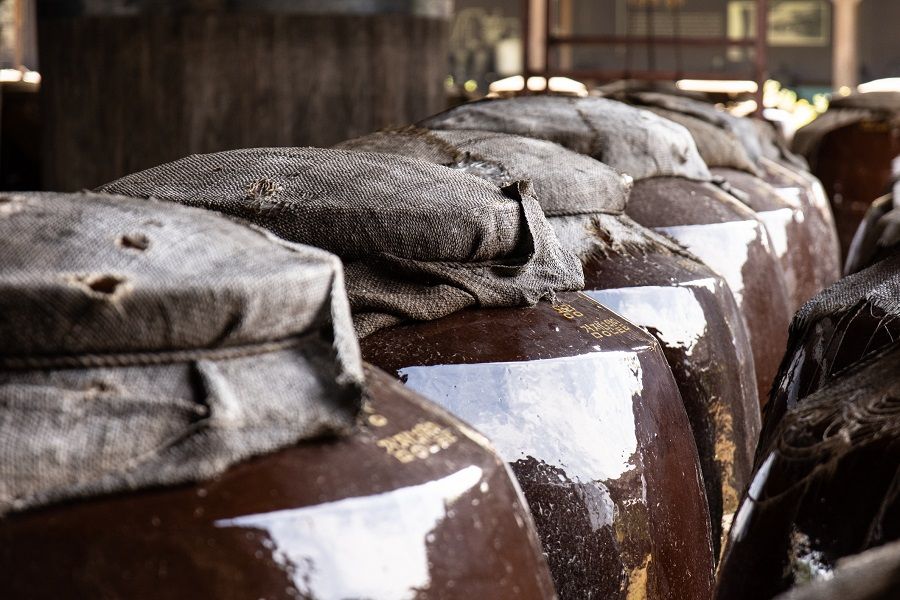
Best paired with writhing octopus tentacles
After eating and deciding on the plan for the next exhibition, Prof Lee said, "Our friends from Hong Kong can follow me; the rest of them know where we are headed and can get there themselves. It's not that far away. Let's all meet at a wine bar, and drink makgeolli, beer, soju and everything you can think of there."
Ah, I realised that we were going to have supper after our meal. Prof Lee did not forget about the makgeolli I was talking about. We arrived at the wine bar first and were greeted by a glass tank filled with live octopuses. The long tentacles of the octopuses were thrashing about in all directions, as if they were tangled together. One minute the octopuses looked like they were doing tai chi underwater, and the next they resembled poised and graceful women doing water ballet. Prof Lee pointed at those dancing molluscs and said that they would be perfect as snacks to go with our alcoholic beverages later on!
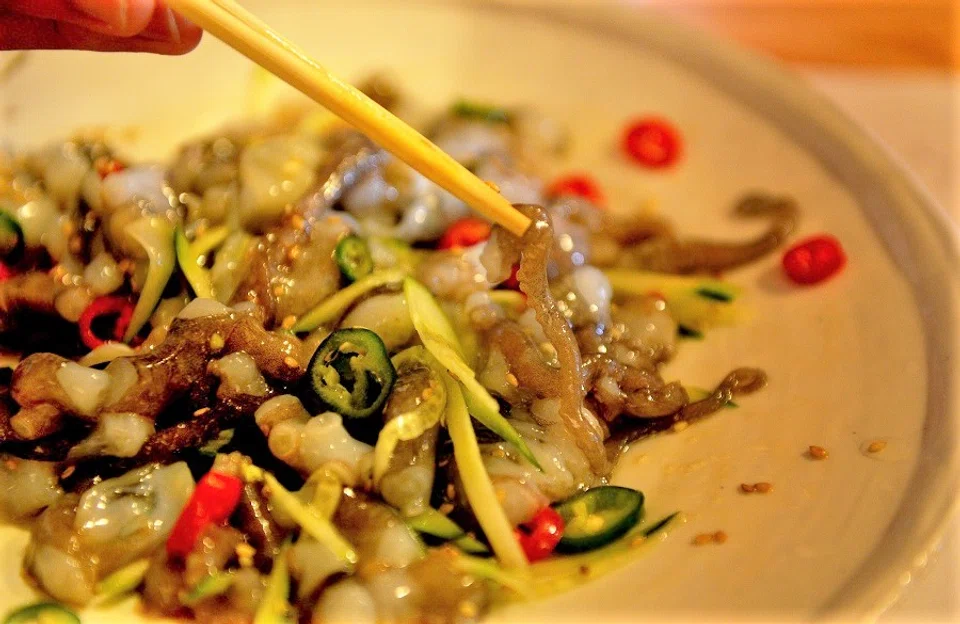
Once everyone was seated at the table, the dishes were served. First came a large plate of moving octopus tentacles cut into one-inch pieces. They were writhing on the plate, like ferocious snakes and tigers, but more like the text in Tang dynasty calligrapher Sun Guoting's Shu Pu (《书谱》), a book written in the cursive script - its characters squiggly and full of vitality. For the best flavour, the tentacles are to be dipped into a small plate of sesame oil topped with a pinch of salt before eating; like writing in the cursive script - you have to dip your brush into ink before you can write your best work.
... he flipped the bottle back up, elegantly opened the bottle cap, and poured the milky-white rice wine into our bowls - like rain, gently watering all things in the universe.
The owner came with a few bottles of beer, a whole pitcher of dark beer, and a glass cup for everyone. He then served a few bottles of makgeolli and gave each person a shallow bowl. So that's how you drink makgeolli - in a big bowl, and much like how a labourer would have downed his with great gusto.
Korean rice wine, which has chalky sediments at the bottom of the bottle and is rich in lactic acid bacteria, needs to be mixed well before drinking. I initially thought that shaking the bottle so that the sediments could mix well with the wine would do the trick. But Prof Lee said no; if we shake the bottle too violently, the air pressure inside the bottle would well up and possibly explode, just like in opening champagne - that would be disastrous! He flipped the bottle over, gently pinched the bottom of the plastic bottle, and slowly swirled the bottle around. When the mixing was about done, he flipped the bottle back up, elegantly opened the bottle cap, and poured the milky-white rice wine into our bowls - like rain, gently watering all things in the universe.
A poem or two with my makgeolli?
Makgeolli is slightly tangy and refreshing, and tastes a bit like watered-down sweet rice wine with grapefruit juice. It is smooth and a little fizzy from the fermentation process, and also sweeter and a little on the gelatinous side, compared to the bitter notes in beer. My Korean friends told me that they used to brew this at home back in their hometowns and would drink it at gatherings with friends and family during the festivities. The drink is indeed full of rustic charm. The word "makgeolli" is made up of two parts: "mak" meaning "rough", and "geolli" meaning "to filter". Put together, "makgeolli" means "rice wine that is roughly brewed and roughly filtered". Its alcohol content is very low as well - basically around 6% - similar to the rice wine drunk in ancient China.
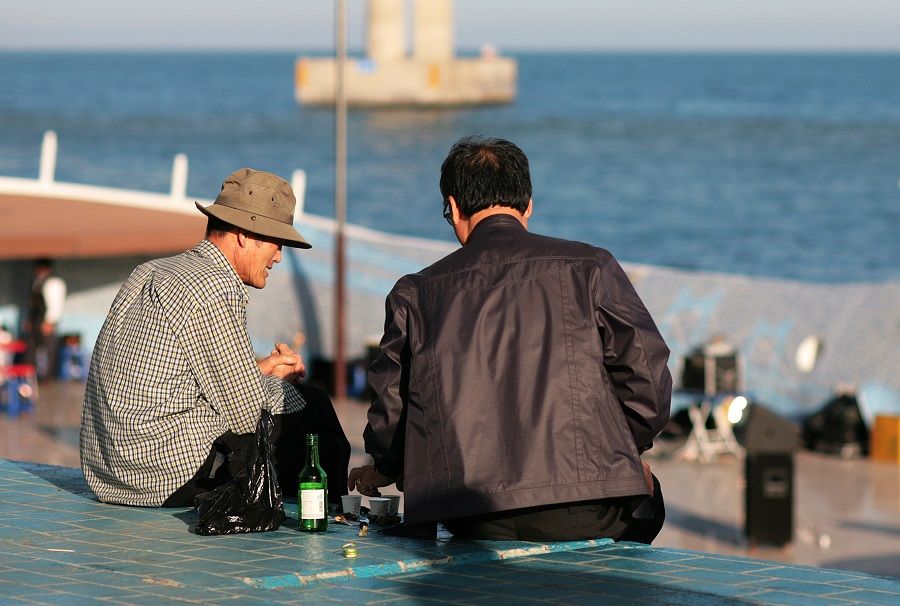
Sipping makgeolli made me think of how Six Dynasties poet Tao Yuanming was said to have habitually used his headscarf as a filter for filtering his homemade wine. I was also reminded of a line in "The Fisherman (渔夫)", a work found in Chu Ci (《楚辞》, Songs of Chu, featuring songs from the Warring States period): "Since everyone is inebriated, why not just drink to your heart's content and let things be?" Drinking makgeolli with my friends from Korea, I thought of ancient literati drinking wine in my hometown. I felt as if I was at a gathering with Chinese and Korean literati, drinking wine, composing poetry, and writing calligraphy.
And as I drank makgeolli and ate live octopus, I thought of Qu Yuan, of Tao Yuanming, and of Silla poet Choe Chiwon who lived in Yangzhou during the late Tang dynasty. I felt as if time and space had converged and I was travelling back in time. Just as I was getting a little drunk, Prof Lee patted my shoulder and warned me that I had to be very careful when eating live octopus as it was actually quite a risky affair. He advised me to chew thoroughly and to only swallow after I have chewed all of the octopus' tentacle suckers. Otherwise, the suction cups on the tentacles could latch onto my throat and choke me. Upon hearing his reminder, I made sure I chewed long and hard, downing a full glass of milky-white makgeolli as I went.
This article was first published in Chinese on United Daily News as "韩国米酒".
